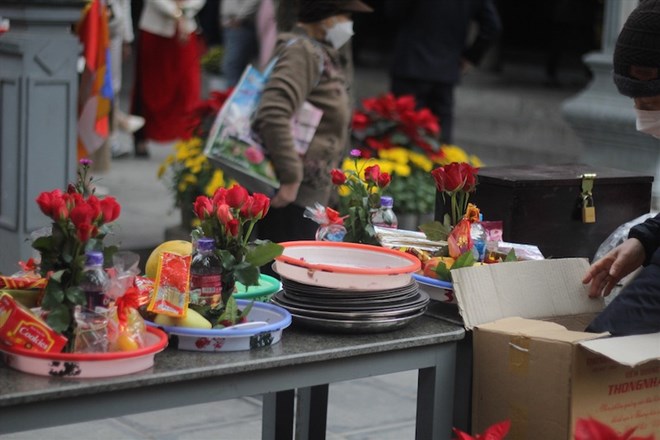Lao Cai province has just proposed that the Ministry of Home Affairs issue a document guiding the implementation of management of the activities of "private shrines"; management of religious activities at religious establishments; guidance on management of propaganda of religious activities on cyberspace,...
Responding to the petition of Lao Cai province, the Ministry of Home Affairs said: Document No. 1400/TGCP-TGK dated November 28, 2019 of the Government Committee for Religious Affairs (Ministry of Home Affairs) requested the People's Committees of provinces and centrally run cities: Do not allow people to illegally build private temples to organize religious activities that gather large crowds and cause social disorder;
Strictly handle the construction of religious facilities and the organization of activities that affect culture, traditional ethics and security and order in the locality.
On February 27, 2023, the Government Committee for Religious Affairs continued to issue Official Dispatch No. 254/TGCP-TNTGK on strengthening state management of beliefs and religions, including requesting the Department of Home Affairs of provinces and centrally run cities to:
Take measures to prevent the use of private places of worship as community religious facilities for religious activities that gather large numbers of people, causing insecurity and disorder.
Currently, the Law on Religious Belief and its guiding documents do not recognize “private religious establishments” or “private shrines” as religious establishments. Therefore, “private shrines” can only serve family members and cannot gather large numbers of people (like community religious establishments).

Religious activities are regulated in Chapter 3, Law on Religious Beliefs and related documents (Law on Cultural Heritage, Land Law, Construction Law, Criminal Law...).
The concept of “shaman, sorcerer, feng shui master…” is that of people who are involved in “professional, specialized” religious activities. Because they are not properly trained, there is no competent authority to issue “certificates” but most of them are self-proclaimed or awarded by “non-governmental organizations”, so they are not regulated in the legal documents of the state (unofficial).
Organizing activities in cyberspace in the current context is an objective and inevitable trend of the times, taking place in all fields, especially after the COVID-19 pandemic, including religious activities.
Recognizing that issue, the Ministry of Home Affairs has proactively discussed with relevant ministries and branches to agree to submit to the Government to include the content of online religious activities in Decree 95/2023/ND-CP dated December 29, 2023 to replace Decree No. 162/2017/ND-CP dated December 30, 2017 of the Government detailing a number of articles and measures to implement the Law on Religious Beliefs.
Accordingly, when organizing religious activities online or combining in-person and online, religious organizations, affiliated religious organizations, organizations approved to register for religious activities and religious groups must comply with the Constitution, laws on beliefs and religions and regulations of laws on information, communications and other relevant legal regulations.
However, cyberspace is a very special environment, borderless, across space and time, easy to be anonymous, impersonated. Here, personal activities, associated with freedom of speech, are also easily performed on many applications created by many providers in different countries.
Therefore, to ensure the health of religious life and limit deviant religious activities and propaganda on cyberspace, the Ministry of Home Affairs has been and will continue to pay attention to implementing many solutions.











